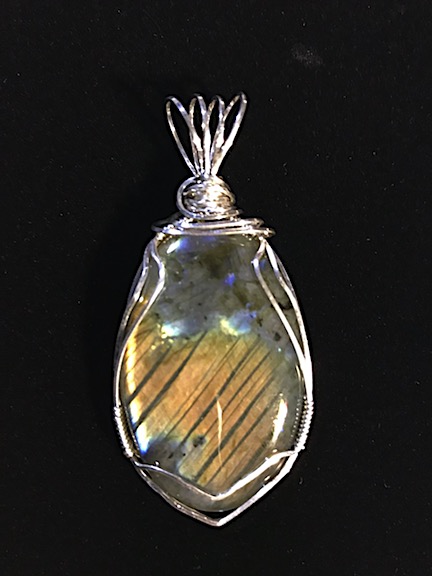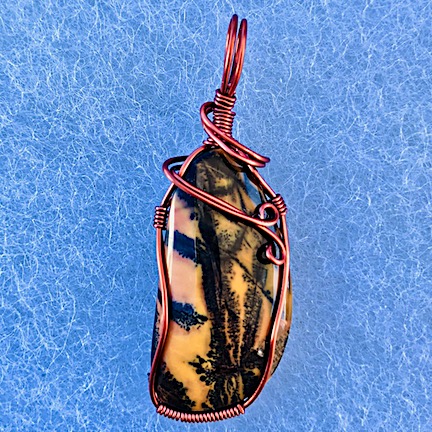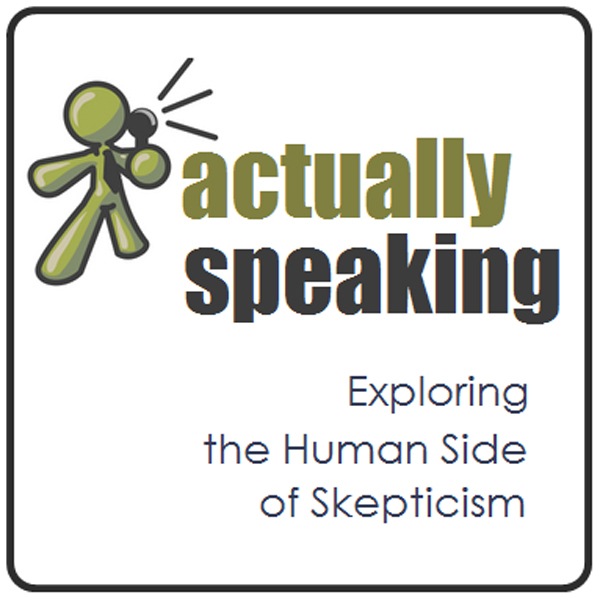And how a podcast helps guide me.
As a skeptic, I’m not likely to believe any outrageous claims without solid proof. Unfortunately, I’m surrounded by people with all kinds of weird beliefs.
I have friends and relatives who believe in things such as ghosts, astrology, psychic power, homeopathy, magnetic therapy, crystal power, and other tested yet unproven concepts. Over the years, as I’ve learned more and more about how unproven these ideas are, I’ve wanted to share my insight to “enlighten” these people in my life. All I’ve faced, however, is frustration. They cannot let go of these beliefs — even enough to see how “proofs” can be faked.
Strained Relationships
One example of this is psychic power. I know people who watch John Edward on television and visit psychics and swear that they’re proof of real psychic power. Yet it’s pretty obvious to me that all these “psychics” are doing is using cold or even hot reading techniques and relying on human nature to remember the “hits” and forget the “misses.” I try to convince these people that what they’re seeing is a scam, but they don’t believe me. In the end, frustrated and disappointed, I feel a great loss. My inability to reconcile my knowledge with their conflicting belief causes me to lose my connection with them. I can’t see them the same way anymore. It puts a huge dent in our relationship.
In the end, I simply begin avoiding the person with the wacky beliefs.
I should clarify here. There are a lot of things people believe in that I don’t. For example, God. I’m an atheist, but I understand why people believe in God and how it helps them in their daily life. If we don’t discuss it, their belief does not affect my relationship with them. The same goes for any other relatively harmless belief that they have but generally keep to themselves.
It’s only when a wacky belief becomes a regular conversation point that I start to back off. Some people want to “convert,” me, to make me a believer, too. But they’re unable to provide the proof I need to believe. I’m unable to convince them to look at things from my point of view. We’re deadlocked. If this becomes an issue each time we’re together, I’d rather just avoid them.
And yes, I realize that “wacky” is a strong and possibly derogatory term. But from my point of view, many of these beliefs are just that: wacky.
Realistic Expectations, Curiosity, and Caution
 Enter the Actually Speaking podcast. This is a different kind of podcast for skeptics. Instead of preaching to the choir by providing us with the facts and scientific evidence we need to understand the reality of unproven beliefs, Actually Speaking helps us deal with non-skeptics in a way that won’t ruin our relationships. Podcaster Mike Meraz offers advice, not facts. And the advice is, on the whole, very good.
Enter the Actually Speaking podcast. This is a different kind of podcast for skeptics. Instead of preaching to the choir by providing us with the facts and scientific evidence we need to understand the reality of unproven beliefs, Actually Speaking helps us deal with non-skeptics in a way that won’t ruin our relationships. Podcaster Mike Meraz offers advice, not facts. And the advice is, on the whole, very good.
Want an example? Well, the frustration I feel when dealing with the wacky beliefs of my friends and family members is a perfect example of how my skepticism can damage my relationships with these people. My reaction — to just back off — isn’t doing anyone any good. Mike suggests, in Episode 2, to develop realistic expectations for discussing conflicting beliefs. My goal should not be to convince people that I’m right and they’re wrong but to try to guide them to the point of Episode 3, curiosity and caution. After all, does it really matter what they believe? Isn’t it more important that they consider looking at their beliefs from other points of view and not get hurt by decisions made based on faulty beliefs? (For example, using homeopathy to cure a real problem rather than visiting a physician and getting real medicine.)
I realized, after listening to these two episodes back-to-back, that I had actually taken this approach and had a very positive outcome. I thought I’d blog about it to share my experience with other skeptics.
The Dowser
The situation dealt with dowsing. According to Wikipedia, dowsing is:
…a type of divination employed in attempts to locate ground water, buried metals or ores, gemstones, oil, gravesites, and many other objects and materials, as well as so-called currents of earth radiation, without the use of scientific apparatus. Dowsing is also known as divining (especially in reference to interpretation of results), doodlebugging (in the US), or (when searching specifically for water) water finding or water witching.
A Y- or L-shaped twig or rod, called a dowsing rod, divining rod (Latin: virgula divina or baculus divinatorius) or witching rod is sometimes used during dowsing, although some dowsers use other equipment or no equipment at all.
In this situation, an acquaintance — we’ll call him Joe — claimed to be able to dowse gravesites to determine the gender of people buried. He uses this “skill” out in the desert to comb through pioneer cemeteries and other unmarked gravesites and report about people buried there.
A friend of mine — we’ll call him Bill — often writes articles about desert exploration for a Web site I manage, wickenburg-az.com. He went on an outing with Joe and documented Joe’s findings. He then submitted an article about their outing for inclusion on the Web site.
While the general content of the article was interesting and I was sure the site’s readers would enjoy it, Bill included a detailed listing of the gravesites Joe had dowsed, including the number of graves (all unmarked) and the genders of the people buried there. I had a problem with this. I don’t believe that dowsing can provide factual information like this.* Including an account of the dowsing and its results could undermine the otherwise fact-based account of their outing. It could make the site look like a supporter of unscientific beliefs or, to use a term that’s falling out of fashion among skeptics these days, woo.
Worse yet, the article could provide a source of information for serious researchers attempting to find gravesites of specific individuals. Was the female grave at the site the grave of so-and-so’s long-lost aunt Mabel? How could I allow the article to state that there was a female grave there at all if there was no real proof? After all, the only way to be sure there was a grave at all would be to dig it up — which was completely out of the question for so many reasons.
I was in a quandary. I wanted the article, but I didn’t want the dowsing information in it. Bill, I felt, was a reasonable person. I was surprised that he believed in the power of dowsing. So I asked him straight out if he thought the dowsing results were reliable. I told him that I hadn’t heard of any scientific proof of dowsing claims. I told him I was skeptical and didn’t want to report unreliable information.
Bill, to his credit, considered my words. He got on the Internet and started doing some research. He found some documents that seemed to support dowsing. But then he found better documents from better sources — scientific sources — that indicated that dowsing was unproven and likely not possible. He sent me links to everything he found. He seemed embarrassed that he had been taken in by Joe’s confidence in his abilities. He rewrote the article to remove the mention of dowsing. I published it on the site.
By encouraging Bill to be curious about dowsing, I’d helped him come to his own conclusions about dowsing. He made the changes I needed in his article to feel comfortable about publishing it. Our relationship didn’t suffer at all. In fact, Bill seemed genuinely glad that I’d questioned him about it and that he’d had an opportunity to learn more.
Exploring the Human Side of Skepticism
Actually Speaking has helped me see how the way I dealt with Bill’s belief was the right way to deal with it. I didn’t tell him he was wrong. I didn’t belittle or insult him. I treated him like the intelligent human being he is. I made him curious enough to do his own research and come to his own conclusion. This tells me that the advice is Actually Speaking is good, solid advice because it can work.
Are you a skeptic or critical thinker surrounded by people with wacky beliefs? If so, give Actually Speaking a try. I think it might help you with your relationships with these people.
——–




 Enter the
Enter the